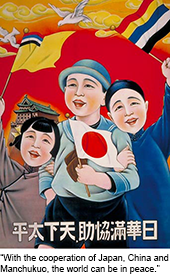Most people in the UK would probably not attach much significance to the 15th August. Elsewhere it is a day of national significance, not least of all in China, as it is the day on which the Imperial Japanese army surrendered, and the Second World War truly came to an end.
As we approach the commemorations of that day it has been announced that the Queen will attend a series of events on the day, a veterans’ parade and there will be “a spectacular flypast of historic and modern military aircraft” in Whitehall. It’s important that we commemorate the event, not out of any pride of achievement, but to remember the selfless acts and terrible situations endured by past generations. We are grateful to the men and women who sacrificed so much, but in truth we surely would prefer that the war had never happened at all.
It is easy to understand the naming of the two world wars as “First” and “Second” simply as a chronological ordering, but like a modern blockbuster film with an ambiguous ending laying the foundation for the sequel, in many ways the outcome of the peace treaty to end the Great War signed at Versailles laid the foundation for the Great War part two. No more is this more true than for China. Indeed, Wellington Koo, China’s principal negotiator at Versailles, foretold that giving the former German concession of Qingdao to Japan would lead to war between China and Japan within a decade.
China’s pleas for the return of Qingdao fell on deaf ears, indeed, Britain had secretly agreed to support Japan’s claim to Qingdao in return for naval support during the war from the Japanese. China did not sign the Treaty of Versailles and Koo and his colleagues returned to China with a huge sense of having been betrayed by Britain, France and most of all the USA – their feelings reflecting the mood of the Chinese nation.
 In 1931 Japan invaded and successfully annexed Manchuria, renaming it Manchukuo and setting up a puppet regime. China sought a diplomatic solutions through the League of Nations, but rather than leave Manchuria as the League demanded, Japan shocked the world and left the League in 1933. Although Koo was wrong on the timing, his prediction of war with Japan proved to be accurate in 1937, and China was ravaged by war until Victory over Japan Day, 1945.
In 1931 Japan invaded and successfully annexed Manchuria, renaming it Manchukuo and setting up a puppet regime. China sought a diplomatic solutions through the League of Nations, but rather than leave Manchuria as the League demanded, Japan shocked the world and left the League in 1933. Although Koo was wrong on the timing, his prediction of war with Japan proved to be accurate in 1937, and China was ravaged by war until Victory over Japan Day, 1945.
The contribution of the men of the Chinese Labour Corps and their equivalents recruited to support France and Russia proved insufficient to prevent Britain, France and the USA giving away Chinese land as spoils of war. Perhaps they could not see the consequences of such a decision. More likely they chose not to see it, Wellington Koo having eloquently spelled it out.
As we commemorate VJ Day it is worth taking a moment to reflect on the First World War origins of the Second, and the lessons we can learn.